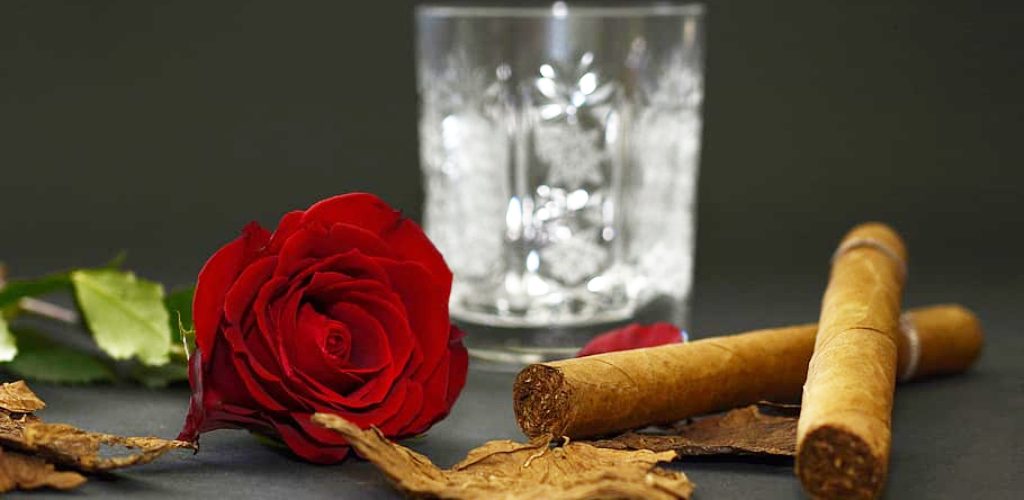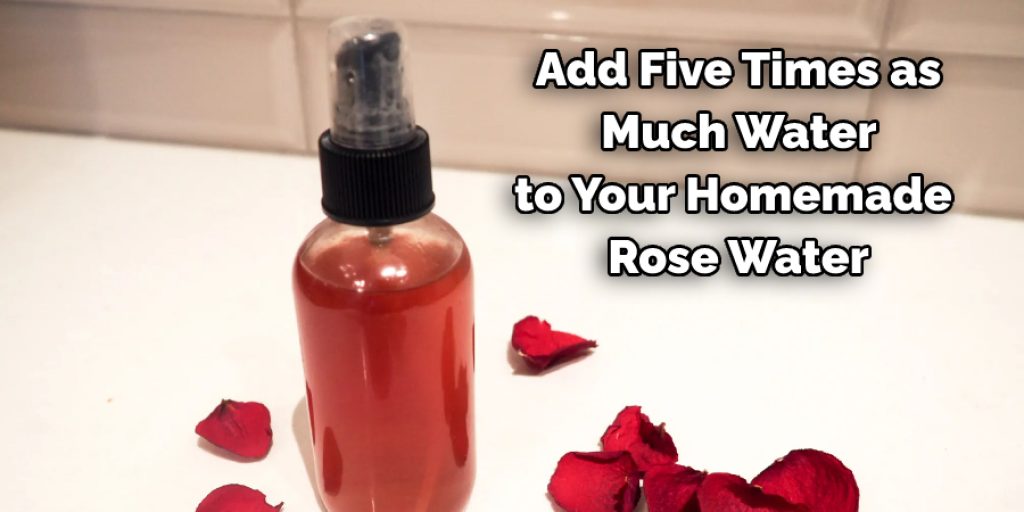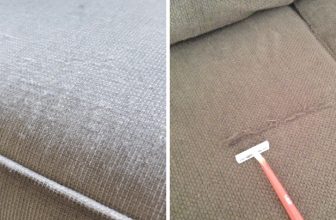How to Preserve Homemade Rose Water
Rosewater is a popular ingredient in Middle Eastern cuisine. It can also be used as an aromatherapy spray to help you stay cool during the hot summer months. This post will show you how to preserve homemade rosewater to last for weeks and months instead of just days! In addition, it’s possible to make your rose water with a few simple steps and ingredients you probably already have on hand!
While there are many uses for homemade rose water, one of the most popular is face toner. When used regularly, this natural product has been shown to reduce signs of aging and diminish fine lines while giving skin a healthy glow that lasts all day long. Of course, you’ll also want to check out these other benefits before making your own!

10 Reasons Why You Should Use Homemade Rose Water?
1. Virgin Oil:
The best way to get rose oil is by cold-pressing it from fresh roses, which is also called virgin oil. This is the most potent form of rose oil and is best used in aromatherapy. All other forms of rose waters are a diluted version of this, so they are not as good.
2. Anti-aging Effects:
Vitamin C is an antioxidant that slows down the aging process. Rosewater has a high concentration of Vitamin C, which makes it beneficial in preventing fine lines and wrinkles on your face.
3. Prevents Breakouts:
Rosewater balances your skin’s pH levels, giving you a clear and smooth complexion. It also has anti-bacterial properties that help fight acne as well as prevent further breakouts from occurring.
4. Soothes Sunburned Skin:
Rosewater cools sunburned skin and reduces redness. Its anti-inflammatory properties will also help reduce the pain associated with sunburned skin.
5. Prevents Acne Scars:
The antioxidants present in rose water heal damaged skin, fight free radicals that cause acne scars, and prevent premature aging of your skin. It also
6. Non-Drying Facial Toner:
The astringent properties in rosewater tighten the pores on your face to prevent dirt from entering it. It also balances your skin’s pH level to prevent drying.
7. Controls Oily Skin:
Rosewater has been used for centuries to help manage oily skin. Adding a few drops of rose water to your regular moisturizer can help reduce the amount of oil on your skin.
8. Hydrating Properties:
Rosewater is a natural moisturizer full of antioxidants, vitamins, and minerals. It helps eliminate dry, flaky skin and makes your complexion look fresh and glowing.
9. Treats Hair Loss:
Rosewater can also treat hair loss and keep your scalp healthy while promoting new hair growth. Dab a cotton ball in some rose water and rub it directly on your scalp to treat hair loss.

10. Lightens Skin Discoloration:
Rosewater can help even out your complexion by lightening the dark or discolored areas of your skin. Just mix one raw honey part with two pieces of rose water, then apply the mixture to the affected area.
10 Effective Methods on How to Preserve Homemade Rose Water:
Here we have given some methods on how to preserve homemade rose water.
1. Dehydrating and Shredding:
Remove all water from the rose petals by dehydrating them at low heat. Once you’re done, pulverize the petals to powder form and store them in a jar or a zip-lock bag in a dark place. You can add powdered rose petals directly to your food if desired instead of using them as a face mask!
2. Rose Water Ice Cubes
Fill ice cube trays with rose water and freeze them before popping the cubes into a zip-lock bag or a jar for storage. You can use these cubes to flavor beverages without adding too much sugar! This is perfect if you want to add a hint of floral flavor to your iced tea or fruit punch.
3. Gelatin Powder Mix:
Add powdered gelatin to the freshly made rose water and allow it to sit for about an hour before transferring the mixture into a jar or a vacuum-sealable plastic bag. If you want a vegan alternative, substitute gelatin with agar-agar powder or flakes instead. Keep the jelly in the refrigerator, which will last about three weeks.
4. Rose Water Concentrate:
Add five times as much water to your homemade rose water and boil it until the amount reduces into half. Pour the concentrated rose water into ice cube trays for storage or into a jar with an airtight lid. This recipe yields about one-third cup of concentrate, which can flavor more than thirty servings of tea!

5. Vinegar Tincture:
Combine the rose water with white vinegar at a ratio of 1:2 and pour them into clean jars. Store in dark places for three weeks before straining the mixture to obtain vinegar tincture often used as a salad dressing or skin toner.
6. Mascarpone Cheese Spread:
Add pureed fresh strawberries to mascarpone cheese and beat the mixture with a hand mixer. If desired, you can also add some homemade rose water not to taste too bland. Finally, top the resulting spread on crostini or crackers for a simple and delicious appetizer.
7. Coffee Syrup:
Dissolve one cup of cane sugar in two cups of coffee and add a tablespoon of water and lemon juice. Transfer the mixture into clean jars and store it in the refrigerator for several months or until its best before date has been reached. You can use this syrup to sweeten your iced coffee, cocoa, and other drinks!

8. Rose Petal Jam:
Combine one part of water with two parts of granulated sugar in a saucepan and bring it to a boil. Once the mixture has reached its boiling point, add fresh or dried rose petals and simmer for about half an hour.
If desired, add some white wine vinegar, lemon juice, and pectin before transferring the mixture into clean jars. Store the jam in the refrigerator and use it within two weeks for the best results.
9. Rose Apple Cocktail:
In a blender, combine fresh apple juice with two parts of rose water and add some ice cubes. If desired, you can also add a teaspoon of grenadine syrup or a little bit of pomegranate molasses for more flavor. Blend the ingredients to mix them thoroughly, and serve this cocktail chilled.
10. Rose Petal Preserves:
Combine one cup of water with two cups of granulated sugar in a saucepan and bring the mixture to a boil. Boil it for about two minutes before adding five ounces or twenty-five grams of fresh rose petals. Remove the syrup from heat and allow it to cool completely. Store the preserves in clean jars and use them within two months for best results.
Some Tips and Tricks:
Below are some tips and tricks you can follow to help you on how to preserve homemade rose water easily.
1. Regular tap water with chlorine and fluoride will ruin the rose water and must be boiled and cooled before mixing with sugar

2. If you don’t care about the shelf life of your product, omit the boiling process
3. If you plan on painting with it (unglazed pottery or canvas is best), then keep in mind that the rose water will evaporate within a week
4. Use food coloring to achieve different colors if desired, but note that it does not give as vibrant of color as commercial dyes
5. The rose water effect can be achieved with cologne, vodka, or glycerin in place of the sugar solution
6. If you have a food dehydrator, drying roses in it will help to preserve their color
7. You can use a mortar and pestle if a food processor is unavailable
8. Rose oil may be extracted from roses by using a bowl, cheesecloth, and strainer
How Long Will the Rose Water Last?
How long homemade rose water will last depends on the container you have it stored in. If the rose water is placed in an airtight, it can last anywhere from 2 days to a few months, depending on how fresh your roses are.
But if you store your rose water improperly, it can expire within a couple of days. For best results, refrigerate the rose water while it’s fresh. The cold will slow down bacterial growth and prevent it from spoiling quickly.
If you want to make your rose water last longer, you can freeze it. Just put it in an airtight container before you put it in the freezer. When you’re ready to use it, take it out of the freezer and put it in the fridge for 24 hours to thaw it out. If you drink rose water, make sure to keep it away from sunlight or fluorescent light. These types of lights make the nutrients in the water go bad faster.
But there are several ways to prolong nutrient degradation if your rosewater is exposed to light. We have mentioned how to preserve homemade rose water. So be sure to read this entire blog post.
5 Common Mistakes to Avoid When Preserving Rose Water:
1. A common mistake is to use lemon juice. Rosewater has a poor pH balance. Adding lemon juice will only cause the rose water to have a higher acidity, resulting in it not preserving or creating mold growth.
2. Regular tap water will lead to bacteria growth due to contaminants that are not filtered out in regular tap water.
3. If left at room temperature, ingredients with sugar will ferment and grow mold. Adding a preservative will prevent mold growth as well as fermentation.

4. Another common mistake is to use the rose water immediately after creating it without allowing it to sit for a day or two before using it. This allows all of the yeast in the mixture to die, making it much less likely for mold growth. This also removes all of the water in the rose petals, making the roses last longer without losing their scent.
5. Lastly, adding too many petals or insufficient water will produce low yields, and poor quality rose water. If using too many petals, the water will ferment and create mold. If there is not enough water, the rose petals won’t be able to float in the mixture, which can also lead to fermentation and mold.
Conclusion:
Rosewater is a popular and widely used flavor in Middle Eastern cooking. It can be made easily at home by steeping rose petals in boiling water, using straining to separate the rose water from the rose flower.
Then, it’s simple enough to mix with sugar syrup and store for later use as needed. Rosewater is highly fragrant and can be used for many purposes such as cooking, skincare products, or even natural remedies like love potions!
So go ahead and enjoy your homemade rose water with no worries of spoilage because it will last much longer than regular distilled water that has been sitting on shelves at grocery stores. We hope this blog post on how to preserve homemade rose water has helped give you some insights on keeping them yourself. You’ve worked hard to produce this delicious drink, so don’t let it go to waste!




